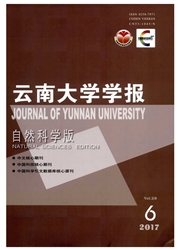

 中文摘要:
中文摘要:
运用平均场理论和非线性动力学方法分析规则网格中带人工免疫SIRS传播模型的动力学行为,并通过计算机模拟来研究人工免疫,群体密度以及个体游动等因素对疾病传播的影响.结果表明实施人工免疫可以有效降低系统的稳态感染比例,提高系统的传播阈值,而且在群体静止情况下的效果明显高于群体游动时的效果.与此相反,个体的随机游动会提高系统的稳态感染比例,降低系统的传播阈值.
 英文摘要:
英文摘要:
According to the mean-field theory and nonlinear theory,the dynamic behavior of SIRS model with immunization on regular lattice is discussed in detail.The effects of artificial immunization,crowd density and the moving activity of individuals on disease spreading are investigated by computer simulation.The results indicate that artificial immunization can reduce the stable infective ratio and increase the threshold of epidemic spread.Furthermore,its effect in the case of static crowd is better than that of moving crowd.On the contrary,the moving activity of individuals can enhance the stable infective ratio and decrease the threshold of epidemic spread.
 同期刊论文项目
同期刊论文项目
 同项目期刊论文
同项目期刊论文
 期刊信息
期刊信息
